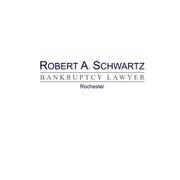How Chapter 13 Bankruptcy Stacks Up Against Debt Settlement

You might have seen ads for companies promising to help you settle debts for a fraction of what you owe, without the necessity of filing for bankruptcy. While this proposal might sound good to those drowning in unpaid debt, how do the benefits of debt settlement measure against seeking Chapter 13 Bankruptcy protection? Depending on the nature of your debts and how much you owe, you might be surprised by the answer.
Debt Settlement Pros & Cons
Most debt settlement companies require you to submit regular payments, which are deposited into an account that will be used to settle your debts later. In the meantime, you are supposed to stop making your regular payments, which is supposed to give the debt relief company enough leverage to negotiate settlements for a portion of the amount you actually owe. In the meantime, you'll still be fielding phone calls from debt collectors, who still have the right to repossess secured property, file lawsuits, and even garnish your wages.
The Benefits of Chapter 13 Bankruptcy
 If you've fallen behind on your mortgage or car payments, the lender will usually refuse to accept partial payments. Chapter 13 bankruptcy consists of a court-managed payment plan designed to allow you to catch up over the course of three to five years. In addition to discharging most of your unsecured debt, filing a Chapter 13 petition also puts an immediate stop to collection activities, including repossession and garnishment.
If you've fallen behind on your mortgage or car payments, the lender will usually refuse to accept partial payments. Chapter 13 bankruptcy consists of a court-managed payment plan designed to allow you to catch up over the course of three to five years. In addition to discharging most of your unsecured debt, filing a Chapter 13 petition also puts an immediate stop to collection activities, including repossession and garnishment.
According to Robert A. Schwartz, a Rochester debt relief attorney with over 30 years' experience, filing for bankruptcy may also be better for your credit. If you're struggling with bills you can no longer pay and don't know where to turn, this established legal professional will identify your options and help you get a second chance at life. Follow him on Facebook for information about debt relief, or visit his website to learn more about bankruptcy law. To schedule a consultation, call his office at (585) 351-2929 today.
About the Business
Have a question? Ask the experts!
Send your question

